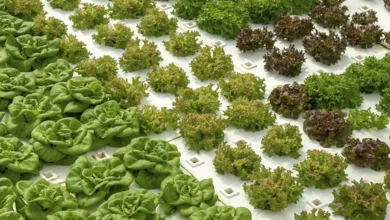The Importance of Protein as We Age

Whether you want to build muscle, lose body fat, or simply maintain functionality as you age, protein is key for optimizing health and longevity.
Unfortunately, most people regularly under-consume protein, leading to frailty, poor metabolic health, and many other negative health effects — especially in the older population.
Considering that falls are the leading cause of injury and injury-related death among older adults in the United States, it is crucial to focus on muscular health throughout life. Adequate protein consumption, combined with resistance training, helps slow the loss of muscle mass and strength that occurs with aging.
What exactly is protein, and what does it do?
Protein is one of the three macronutrients in food. Our bodies use protein as energy or building materials. Proteins are complex structures composed of amino acids. They are responsible for most of the work carried out in every cell in our bodies.
A common misconception is that protein is only necessary if you are trying to put on significant amounts of muscle. This is far from the truth. Protein plays a variety of roles throughout the body: It influences blood sugar regulation, detoxification, cholesterol levels, brain function, bone health, and more. Our hormones and immune cells are built from proteins; without enough of it, we may experience hormone imbalances and weakened immune systems.
Protein also plays a huge role in improving our metabolism and fat-burning potential. It helps us maintain muscle, which keeps our metabolisms firing. High protein intake also increases the secretion of satiety hormones while simultaneously decreasing the secretion of hunger hormones. An ideal scenario for weight loss would promote satiety and maintain a fast metabolism while reducing one’s overall calorie intake. This scenario is best achieved through a high-protein diet.
A widely accepted theory called the protein leverage hypothesis claims mammals, including humans, will eat enough protein, even if that means overeating calories. In other words, if you are not consuming enough protein throughout your meals, you will continue to consume calories until you eat the amount of protein your body needs. Therefore, the key is to meet our protein requirements before exceeding our caloric needs.
How much protein do I need?
Generally, we should consume at least half of our body weight in pounds in grams of protein each day: If you weigh 150 lbs., you should eat 75 grams of protein per day. If you exercise regularly, have a chronic disease, or are over the age of 65, your protein needs are likely even higher.
Most people tend to consume the bulk of their protein intake at dinner. This is a losing strategy.
Protein is the only macronutrient that cannot be stored for later use. It’s important to consume adequate protein throughout the day; aiming for 25 to 30 grams of protein per meal is a good goal.
Breakfast tends to focus on carbohydrates like cereal, oatmeal, and toast, so you can make a big impact just by beginning your day with a protein-packed meal. This is beneficial for your metabolism, and you can feel good knowing you’ve started your day on the right foot.
What are the best sources?
Meat, seafood, and dairy are great sources of protein. Plant sources like beans, soy, quinoa, nuts, and seeds can also provide protein.
The main difference between animal and plant proteins is the amino acid profile. Animal-based sources are considered “complete,” meaning they contain all nine of the essential amino acids. Plant sources, when consumed in combination, can still provide all the essential amino acids — it just requires more planning. If you consume a primarily plant-based diet, make sure to consume a variety of protein-rich plant foods.
These foods can help you reach your protein goals:
- Ground beef, cooked, 4 oz: 33 grams
- Chicken breast, cooked, 4 oz: 30 grams
- Salmon, cooked, 4 oz: 28 grams
- Shrimp, cooked, 4 oz: 27 grams
- Greek yogurt, plain, 1 cup: 23 grams
- Cottage cheese, plain, ½ cup: 14 grams
- Beans, canned, ½ cup: 9.5 grams
- Tofu, 4 oz: 9 grams
- Edamame, shelled, ½ cup: 9 grams
- Hemp seeds, 3 tbsp: 9 grams
- Quinoa, cooked, 1 cup: 8 grams
- Egg (single): 6 grams
- Protein powder, whey, 1 scoop: 25 grams
A food-first approach is preferable, but protein powders can help those who struggle to meet their protein needs through food alone. These powders can be mixed into smoothies, oatmeal, pancakes, and more.
While whey protein typically has the most complete amino acid profile and thus is most effective at stimulating muscle protein synthesis, plant-based proteins are a suitable alternative for those sensitive to dairy. When choosing a protein powder, consider factors like added ingredients, third-party testing, and the grams of protein relative to carbs and fat.
Increasing your protein intake doesn’t need to be complicated. Some tangible tips for consuming more of it include eating a well-sized portion of protein at every meal, prioritizing animal protein over plant protein, and using protein powders as needed.






